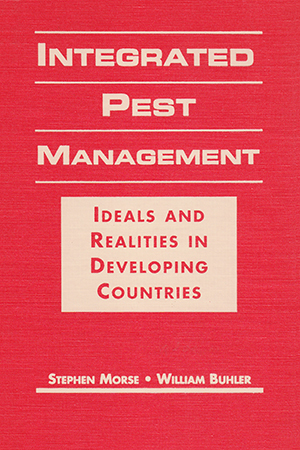
- 1997/172 pages
Integrated Pest Management:
Ideals and Realities in Developing Countries
Hardcover: $45.00
ISBN: 978-1-55587-685-2
Since its inception in the 1960s, Integrated Pest Management (IPM) has become the dominant paradigm in crop protection. Its ecological approach-involving a minimum use of pesticides-has accounted for much of its popularity, and it has been widely adopted by a range of development agencies.
This book outlines some of the classic IPM success stories (primarily from North America) and contrasts them with the results obtained in developing countries. Conventional explanations for IPM's failure in developing countries focus on problems with extension, farmer cooperation, funding, government direction, or even conspiracy in the pesticide industry. In contrast, Morse and Buhler demonstrate that the main reason for the poor performance of IPM has more to do with the nature of IPM itself. A product of agricultural industrialization, IPM may be effective in the context of large-scale industrial farming, argue the authors, but it is not suitable for resource-poor farmers operating on a relatively small scale.







